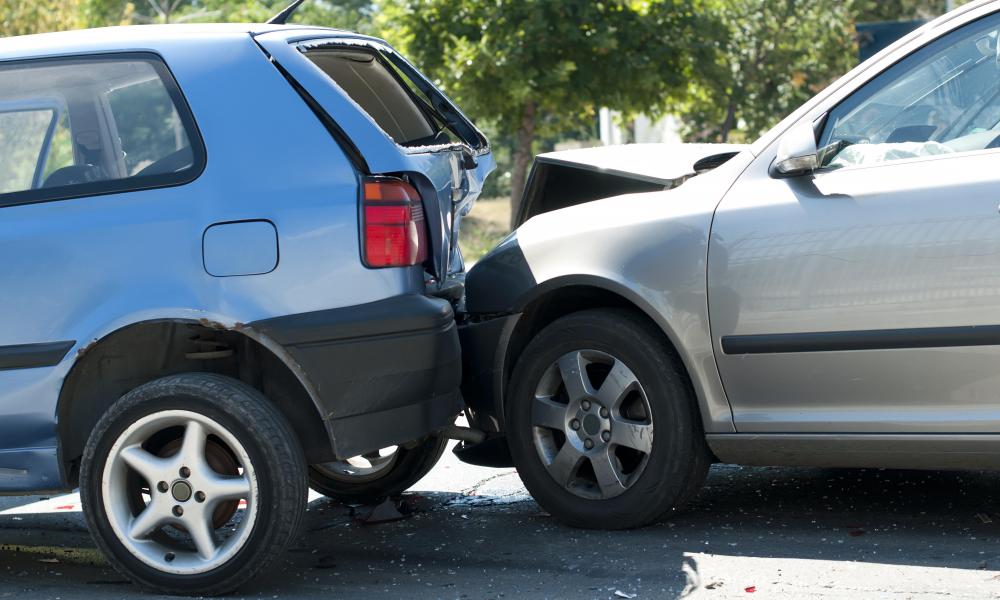At MyLawQuestions, we're committed to delivering accurate, trustworthy information. Our expert-authored content is rigorously fact-checked and sourced from credible authorities. Discover how we uphold the highest standards in providing you with reliable knowledge.
What is Willful Misconduct?
Willful misconduct is an intentional violation of the law or a legal duty. It gives rise to an action in tort or criminal law. It is distinct from negligence.
Every individual has certain duties under the law. Under the criminal law system, people are required to refrain from doing certain actions, such as committing murder, assault, and battery. Under the tort law system, the law imposes a duty of care on people, mandating that if someone does not act with reasonable care, he or she may be held financially liable for damages he causes.

Willful misconduct is a legal term primarily applied in tort law to distinguish intentional torts from negligent torts. It refers to an action that someone intentionally does that injures a victim. For example, driving a car too fast and causing a car accident would be negligence, while intentionally running someone over would be classified as willful misconduct.

The distinction between negligent torts and willful or intentional torts is important because of the different penalties associated with intentional torts. In both negligent and intentional torts, a plaintiff is entitled to recover actual damages for the defendant's breach, such as medical bills and lost wages. A plaintiff is only entitled to recover punitive damages, however, if the tort was intentional or if the behavior was so reckless that injury was almost guaranteed to result.

Punitive damages are designed not to make the victim whole, but to punish the tortfeasor. They are permitted in cases of willful misconduct, but not negligence, because they are designed to act as a deterrent. A tortfeasor may be more reluctant to run someone over on purpose or to hit someone and injure them on purpose if he knows that he can be sued for punitive damages and face the potential for serious financial loss.
A plaintiff who is alleging willful misconduct must prove that the defendant acted with intent, in addition to proving the other elements of the tort action, such as the fact that he was injured and suffered damages. Intent can be proven by the circumstances of the crime, if for example, the defendant clearly injured the plaintiff on purpose. Intent can also be proven by witness statement, victim testimony and related forms of evidence.
Examples of torts that constitute willful misconduct include intentional battery, assault, or sexual harassment. In all those cases, the defendant's actions were clearly designed to hurt, he didn't just hurt by accident. He did exactly what he wanted to do, or he behaved willfully.
AS FEATURED ON:
AS FEATURED ON:













Discussion Comments
What would constitute a warning in an unemployment benefits eligibility determining case (Illinois)?
@lighth0se33 - It is possible to be denied unemployment, but in your case, I think it doubtful. Your former employer would have to prove that you were let go for willful misconduct, but he also would have to prove it was a valid reason.
For example, I was fired for refusing to deliver pizza to a house where I heard shots being fired inside. My employer called it willful misconduct, but a judge said that because I acted out of fear for my life, I was in the right, so I got my unemployment benefits.
Since you acted out of fear for your safety, and his order was unreasonable, you should have no problems getting your benefits.
Can you be denied unemployment benefits if found guilty of willful misconduct? I am curious, because I just lost my job, and they said I was guilty of it.
My boss ordered me to climb a ladder with loose rungs, one of which was actually dangling, to restock a shelf with supplies. I would have had to climb ten feet to do this, and I told him that I felt unsafe.
He got all red in the face and fired me on the spot. I don't think this is fair. I should at least get to draw unemployment.
At the company where I work, a supervisor’s willful misconduct caused the unemployment of my coworker. His inappropriate, sexually harassing behavior went unaddressed by his superiors, and my friend felt the only way she could handle it was to quit.
After sitting at home for a couple of months unable to find another job, she decided that she had been wronged and wanted to seek punitive damages. She contacted a lawyer, and she sued the man and the company for lost wages.
The company fought with all they had. The higher-ups were buddies with the accused supervisor, and they did not want to admit their fault. In the end, my coworker won, though, because several other ladies at the company came forth as witnesses.
The salon where I go to get my hair done is always filled with such drama. The stylists frequently bicker, and one argument ended up with a stylist facing charges of willful misconduct against another.
One stylist physically assaulted another after the victim received hair color that turned orange and damaged the follicles. She accused the stylist of doing a bad job on her hair on purpose so that she could steal clients from her, and the stylist in question hit her with a hot curling iron repeatedly.
The victim sought punitive damages. She said that she had to buy a wig and had to take time off from work to let her burns and bruises heal. She said that the stylist’s actions caused her to lose clients.
Post your comments